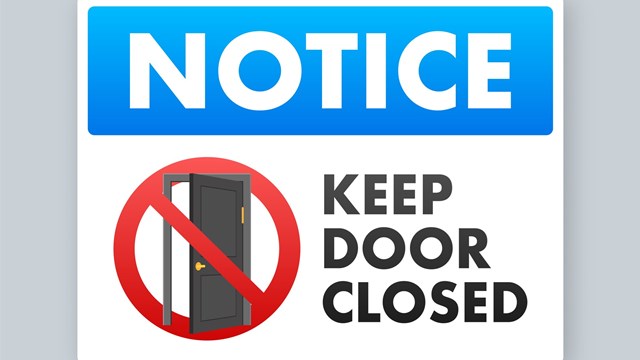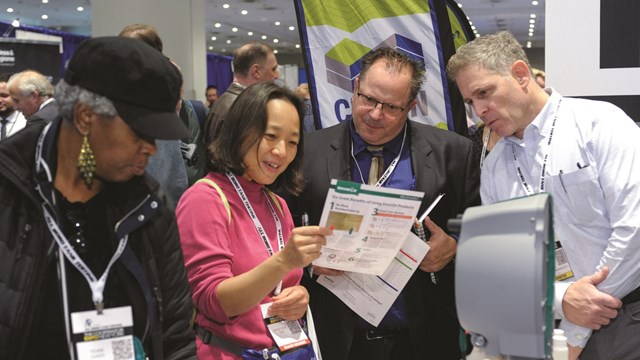In January of this year, a devastating blaze ripped through an Edison apartment building in Edison leaving one woman dead, five people injured and up to 100 others homeless. In March, a space heater ignited a mattress causing a fire that gutted one building and destroyed two others in New Brunswick. In May, an unattended cigarette caused a three-alarm fire that destroyed two condominium units and damaged 14 others in East Windsor.
As startling as these neighborhood catastrophes may seem, most people still don't think enough about fire and fire safety. According to the National Fire Protection Association (NFPA), almost 4,000 people died in home fires last year and property losses exceeded $6 billion. The long-term emotional damage to fire victims and their loved ones is incalculable.
Causes for Concern
"Smoking is still the biggest cause of house fires in New Jersey," says Dan DeTrolio, a member of the New Jersey Fire Safety Commission and chairman of the group's public education council.
The snow, wind, and freezing temperatures of winter are settling over the region, and that means that many homeowners may turn to supplemental room heaters to warm their home. "Heaters, stoves and other heating appliances are also big causes of fire," says DeTrolio. "Candles are also a fast-growing cause of many fires."
The NFPA reports that candles started fires in 18,000 homes in 2001, a 15 percent rise from 2000, and more than triple the number in 1990.
The key to preventing any of these fires from occurring is education and preparation. The New Jersey Fire Safety Commission (NJFSC) diligently works on educating its residents about fire prevention. According to DeTrolio, "You can get safety tips from your local firehouse. We have brochures geared to children, large-print brochures for seniors, and have educated kids going off to college to live in dormitories."
One of the most emotionally devastating fires in New Jersey history happened early on the morning of January 19, 2000, when a fire killed three students and injured 58 others in a Seton Hall University dormitory.
This tragic event has sparked the NJFSC to install sprinkler systems in all New Jersey dormitories. After accomplishing 99 percent of their goal (one private college is still holding out), the commission has turned their attention to mandatory sprinkler systems in co-op, condo, and rental buildings. The commission wants it written into law that all multi-family units will be equipped with sprinkler systems in the very near future.
"I know [developers] and the real estate industry really want sprinklers, but are afraid of the costs," says Richard Skinner, northeast regional manager of the National Fire Sprinkler Association. "But it's cheaper to put the sprinklers in then they think. The financial devastation resulting from a fire far outweighs the costs of putting in a sprinkler system."
And what are those costs? According to the National Fire Sprinkler Association, the costs for installing fire sprinkler systems in buildings six to eight stories high ranges from under a dollar to about $2 per square foot in most new construction, and from about $1.50 to $2.50 per square foot for retrofitting sprinklers in existing buildings.
By contrast, Skinner continues, "In a [development] where there is no sprinkler system, an entire building can burn to the ground, residents are displaced, that building is no longer on the tax role, lives may be lost, and insurance costs go up. If firefighters are injured or killed, there are payments to those families—and while the fire is happening, more of the city or township is being compromised because the fire department is at that scene. These costs far outweigh the price of a sprinkler system."
DeTrolio agrees. "It's not a law yet," he says, "but for only about $1,500, residents can equip their home with a sprinkler system. Yet many still don't have one. If you're prepared with the right equipment, you can save lives."
Making Safety the Law
Other measures are being championed by lawmakers as well. Sen. Anthony R. Bucco, R-25, in Denville, and a member of the commission, is also advocating for improved fire retardant mattresses. "Someone I know lost a grandson in a house fire that started when a spark from the computer landed on the mattress," says Bucco. "The mattress erupted very quickly. In California, the law requires a 30-minute fire retardant mattress, but that's not enough. We want 60 minutes. It doesn't sound like much, but it could be lifesaving—every minute counts, and we need to give every advantage to building residents and the firemen."
Bucco is proud that several New Jersey building fire codes and laws have been passed successfully over the years to help prevent the spread of fires, especially in row houses or multi-family units. "In any new construction, it is the law to have a stop in the walls between the studs and also between the ceiling and attic spaces that prevent the fire from spreading to other areas," Bucco explains. "In addition, new construction must include hardwired and battery operated smoke detectors and carbon monoxide detectors in the unit."
Early Warnings
According to the NJFSC, every home, apartment, garage, and townhouse should have at least one or two smoke detectors to alert occupants of imminent danger. However, knowing how to use them and where to install them are just as vital as having them there in the first place.
Don't be deceived and believe that if you live in a two-floor unit or row house duplex, placing a single smoke detector downstairs is adequate protection. The decibel level of that alarm probably isn't strong enough to wake a sleeping adult, and if it's placed improperly, it could take telltale smoke too long to reach the detector before alerting residents to danger. Multiple units or units in a tied-together system are what's recommended, so if one detector is activated, it activates the others.
Unfortunately, an NFPA survey on smoke detectors discovered that smaller communities and lower-income, lower education level households tend to have lower rates of smoke alarm ownership. To help overcome this obstacle, New Jersey fire departments partnered with ABC-7's program Operation 7: Save A Life. For the past 4 years, ABC-7 and the fire departments have distributed educational material and free smoke detectors to low-income families throughout the tri-state area. (For more information visit www.wabctv.com)
A Word on CO
Preventing fires by properly maintaining and monitoring heaters, stoves, and ovens also has a fringe benefit: in addition to posing a flammable threat, any fuel-burning appliance can produce dangerously high levels of carbon monoxide, or CO. Known as the "silent killer," CO is odorless, colorless and tasteless, and often goes undetected. High levels of CO in a home can cause dizziness, headache, nausea and sleepiness. If left untreated, CO poisoning can be fatal.
Anything from a furnace, water or space heater, to a fireplace, gas stove or oven, or even a car left running in an attached garage can cause carbon monoxide to build up in a home or apartment if equipment malfunctions or operates without adequate ventilation. In addition to making sure all fuel-burning appliances are in good working order and adequately ventilated, for extra protection residents should purchase an electronic CO detector that is certified to the UL standard for detectors. Most newer smoke detectors have CO detection capabilities as well, and should be placed near bedrooms and basements within easy earshot of residents.
If the Unthinkable Happens
Sometimes, even with proper precautions, careful maintenance, and preventative measures, fires do happen. To minimize the blaze and prevent the potential loss of life, HOA boards and management should encourage homeowners in their communities to install fire extinguishers in their kitchens, garages, and any other areas of their homes where fires may start. Homeowners should look for extinguishers with an "ABC" rating, which means it is good for any type of fire—electrical, chemical, or otherwise. A multi-purpose dry chemical Class ABC fire extinguisher is considered the best choice for general home use, and having more than one in any home is recommended.
High- and mid-rise co-ops and condos should also have an escape route posted prominently in the halls and common areas of their buildings. Managing agents and board members should periodically remind residents of the postings and encourage families to rehearse their own escape plan, plotting at least two exits from each part of the residence and choosing a safe place outside the house where the family can meet to be sure everyone got out safely.
Building managers and associations should also be aware of any residents with special needs, such as the elderly, or those with physical disabilities involving decreased mobility, sight, or hearing, or any other condition that could limit a person's ability to take quick action necessary to escape during a fire emergency. Depending on what physical limitations these residents may have, they may require help from a caretaker, neighbor or rescue personnel to escape the fire. Involve a building manager and neighbors in the escape plan for those residents. If associations are unsure about creating an escape plan, contact your local fire department; they can help you and point out where detectors should be located. In addition, you can also ask emergency personnel to keep a list of special needs residents on file.
Inside, residents should post the fire department number on every telephone. For young children, teach them how to dial "O" for the operator and tell them the house is on fire. Teach them not to hide from fire under a bed or in a closet.
The Value of Common Sense
In the long run, however, using common sense and remaining calm in an emergency is the most important safety tip, but unfortunately, even the best prevention and education can't stop some fires from damaging property. Should your association fall victim, it's important for association members to know that their belongings are covered by adequate insurance. Homeowners insurance is essential to ensuring peace of mind during the worst of times. However, according to Michael Bush, a State Farm agent in Bloomfield, condo and co-op owners might not even realize how woefully underinsured they are until it's too late.
"About five or 10 years ago, condo association insurance would cover the inside walls and unit owners would only be responsible for what was inside the sheetrock, such as washing machines and dishwashers," says Bush. "Nowadays, condo association policies only cover putting up the studs, not the sheetrock. Everything internal is the condo unit owner's responsibility. If there is a fire, the condo unit may only have to frame the building—individual residents would be responsible for everything else."
Bush encourages unit owners to check the bylaws of their association to see what they're responsible for. "Most condo owners may have only $5,000 to $10,000 in coverage, and they don't realize that they may need $60,000 to $70,000 worth of coverage to cover sheetrock, cabinets, bathroom fixtures, and so forth. The unit owners insurance policies are not nearly enough."
Remember, prepare, educate and use common sense. Safeguarding lives and association property is well worth the effort.
Lisa Iannucci is a freelance writer living in Poughkeepsie, New York.







Comments
Leave a Comment